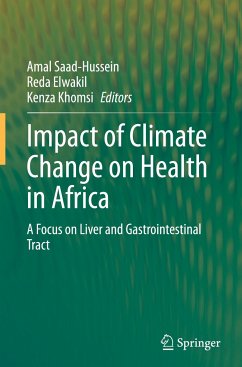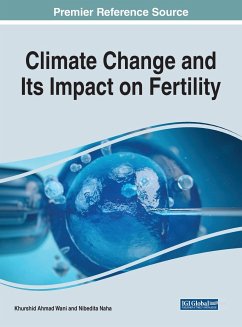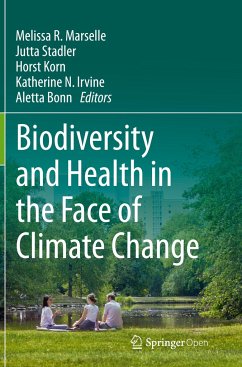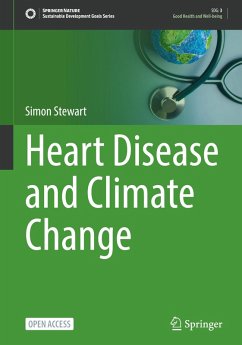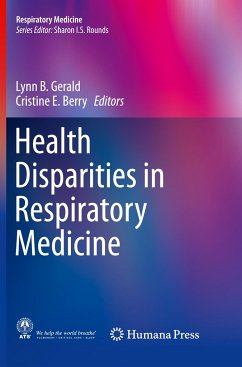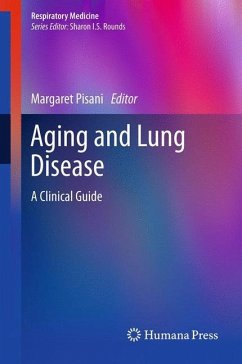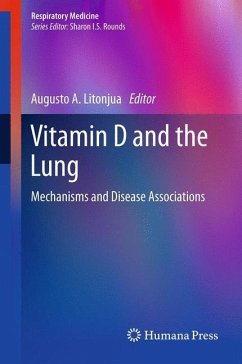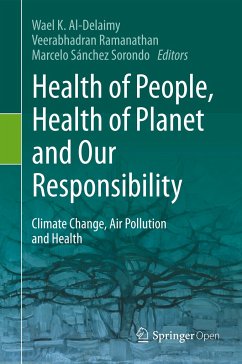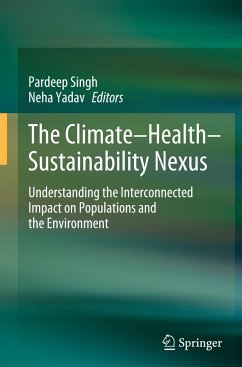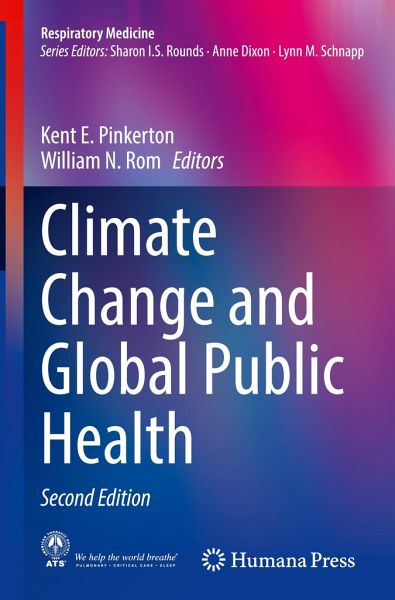
Climate Change and Global Public Health
Versandkostenfrei!
Versandfertig in 6-10 Tagen
83,99 €
inkl. MwSt.

PAYBACK Punkte
42 °P sammeln!
This book is a guide to the research, findings, and discussions of US and international experts on climate change and respiratory health. Since the publication of the first edition, climate change has been increasingly acknowledged as being directly related to the prevalence and incidence of respiratory morbidity. Evidence is increasing that climate change does drive respiratory disease onset and exacerbation as a result of increased ambient and indoor air pollution, desertification, heat stress, wildfires, and the geographic and temporal spread of pollens, molds and infectious agents.This sec...
This book is a guide to the research, findings, and discussions of US and international experts on climate change and respiratory health. Since the publication of the first edition, climate change has been increasingly acknowledged as being directly related to the prevalence and incidence of respiratory morbidity. Evidence is increasing that climate change does drive respiratory disease onset and exacerbation as a result of increased ambient and indoor air pollution, desertification, heat stress, wildfires, and the geographic and temporal spread of pollens, molds and infectious agents.
This second edition is fully updated to include the latest research by international experts on topics such as heat waves causing critical care-related diseases, climate-driven air pollution increases, and high-level ozone and ozone exposure linked to idiopathic pulmonary fibrosis, lung cancer, and acute lower respiratory infection. Seven new chapters have also been added on extremeweather and agricultural safety in California; desert dust effects on lung health; climate policy and the EPA; California's integrated approach to air quality and climate change; integrating climate change, the environment, and sustainability themes into professional health science courses; and the role of the physician as climate advocate. This is an ideal guide for all pulmonologists and health professionals treating patients with pulmonary disease.
This second edition is fully updated to include the latest research by international experts on topics such as heat waves causing critical care-related diseases, climate-driven air pollution increases, and high-level ozone and ozone exposure linked to idiopathic pulmonary fibrosis, lung cancer, and acute lower respiratory infection. Seven new chapters have also been added on extremeweather and agricultural safety in California; desert dust effects on lung health; climate policy and the EPA; California's integrated approach to air quality and climate change; integrating climate change, the environment, and sustainability themes into professional health science courses; and the role of the physician as climate advocate. This is an ideal guide for all pulmonologists and health professionals treating patients with pulmonary disease.



